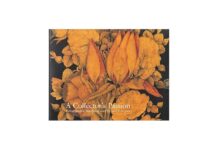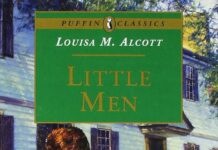In the ever-evolving landscape of feminist discourse, few works have sparked as much thoughtful reflection and spirited conversation as Roxane Gay’s Bad Feminist. invites readers on a nuanced journey through the contradictions, challenges, and candid introspections that define Gay’s seminal collection of essays. This review explores the intricate layers woven throughout the book, examining how Gay’s willingness to embrace imperfection reshapes our understanding of contemporary feminism and asks us to reconsider what it truly means to be feminist in a world that defies simple categories.
Understanding the layered themes and contradictions explored in Bad Feminist through a nuanced, thoughtful lens
Roxane Gay’s Bad Feminist unravels the complexity of feminist identity by embracing imperfection and contradiction, challenging the rigid definitions frequently enough imposed on feminist discourse. Through her essays, Gay invites readers to recognise that feminism isn’t monolithic; it is a spectrum where conflicting experiences and emotions coexist.Her candid reflections on pop culture,race,and gender highlight how personal desires and societal expectations sometimes clash,creating a space where one can be fervently committed to feminist principles yet still enjoy aspects of culture traditionally deemed “unfeminist.” this intricate dance between affirmation and critique compels us to reconsider what authenticity means within feminist conversations.
Key contradictions and themes explored include:
- The tension between individual enjoyment and political ideals
- The intersectionality of race, class, and gender, which resists simple categorization
- The role of vulnerability and imperfection as essential to genuine feminist practice
| Theme | contradiction | Impact on Feminist Thought |
|---|---|---|
| pop Culture Engagement | Liking sexist media while critiquing sexism | Expands feminism to include personal taste without guilt |
| Identity Complexity | Feeling marginalized yet questioning community boundaries | Encourages nuanced inclusivity and self-reflection |
| Perfection vs. Imperfection | Striving for societal change while embracing flaws | humanizes feminist activists and encourages honest dialog |
Examining Roxane gay’s approach to feminism as inclusive, imperfect, and deeply human in Navigating Complexity
Roxane Gay’s feminism in Bad Feminist resists the frequently enough rigid and exclusionary definitions that dominate contemporary feminist discourse. Instead, she embraces an approach that acknowledges flaws, contradictions, and the messy realities of human life. gay does not demand perfection from herself or others; rather, she invites readers to accept the imperfect journey toward gender equality and self-understanding. This outlook fosters inclusivity by recognizing that feminism is not a monolith but a diverse spectrum of experiences and identities. Through her candid reflections and unapologetic embrace of contradiction, Gay makes feminism feel accessible, relatable, and, above all, profoundly human.
The inclusive nature of Gay’s writing is underscored by her refusal to dismiss cultural tastes and personal choices, even when they clash with feminist ideals. This creates a space where complexity is not just tolerated but celebrated. Consider the following elements that shape her unique approach:
- Honest self-examination: Gay openly discusses her own contradictions, allowing readers to see feminism as less about perfection and more about ongoing growth.
- Intersectionality: She acknowledges the layered experiences of race, gender, and class, ensuring that feminism addresses the realities of all women, not just the privileged few.
- Empathy over judgment: Gay prioritizes understanding over purism, creating room for dialogue and shared humanity within feminist conversations.
| Aspect | Description |
|---|---|
| Inclusivity | Welcomes diverse voices and experiences without gatekeeping. |
| Imperfect Practice | Accepts mistakes as part of growth. |
| Humanity | Emphasizes empathy and complexity over dogma. |
Highlighting key essays that challenge traditional feminist narratives and invite personal reflection
Roxane Gay’s collection acts as a mirror reflecting the multifaceted nature of feminism, urging readers to reconsider polished, one-dimensional portrayals of womanhood. Through essays that blend vulnerability with sharp critique, Gay dismantles the myth of a flawless feminist ideal, instead embracing complexity and contradiction. Essays like “What’s the Matter with Michael Jackson?” and “The Illusion of the Good Girl” invite readers to grapple with uncomfortable truths about identity, privilege, and societal expectations. This nuanced approach pushes beyond black-and-white thinking, encouraging a more inclusive and honest dialogue within feminist discourse.
The book’s power lies in its capacity to make feminism deeply personal,reminding us that imperfection and doubt are not failures but essential parts of growth. Gay’s candid reflections open space for self-examination, prompting questions such as:
- How do personal contradictions shape our understanding of advocacy?
- In what ways can embracing “bad” feminism empower marginalized voices?
- What are the limits of traditional feminist narratives, and how can they be expanded?
By weaving together cultural critique and memoir, these essays serve as a call to acknowledge the nuances in feminist identity and activism, making it clear that the path to equality is often messy, imperfect, and profoundly human.
| Essay | Core Challenge | invitation to Reflect |
|---|---|---|
| “Bad Feminist” | Rejecting perfection in activism | What does imperfection look like in your feminist journey? |
| “The F Word” | Feminism and cultural contradictions | How do cultural preferences shape your feminist views? |
| “Makeover” | Beauty standards and self-acceptance | Can you redefine beauty on your own terms? |
The role of pop culture criticism in shaping the discourse within Bad Feminist and its cultural impact
roxane Gay’s Bad Feminist operates as a vibrant crossroads where pop culture criticism and feminist theory intersect, illuminating the nuances and contradictions that enrich contemporary feminist discourse.By dissecting everything from reality TV to literary classics, Gay reveals how popular culture is not just a backdrop but an active participant in shaping societal norms and individual identities. Her critiques do not merely highlight what is problematic but also celebrate the complexities of cultural consumption, urging readers to embrace imperfection and contradiction as inherent parts of feminist engagement. This candid exploration invites a more inclusive dialogue where popular media becomes a lens through which power, race, gender, and sexuality are interrogated, making feminism accessible and relatable to a wider audience.
Key aspects of Gay’s pop culture criticism include:
- Intersectionality: Recognizing how race, gender, and class intersect within media narratives.
- Relatability: Engaging readers by connecting feminist ideas to everyday cultural experiences.
- Complexity: embracing contradictions instead of demanding purity or perfection.
| Element | Cultural Impact | Example from Bad Feminist |
|---|---|---|
| Media Consumption | Shifts perceptions of personal and political | Love-hate relationship with pop culture |
| Feminist Identity | Encourages inclusive definitions | Rejects narrow stereotypes of feminists |
| Public Dialogue | Fosters critical but accessible discussions | Uses humor and honesty |
Ultimately, Gay’s critical engagement bridges the gap between theory and practice, demonstrating that pop culture is an indispensable arena for feminist debate. Her work resonates culturally because it validates the messy realities of being a feminist in a world inundated with conflicting messages.the ripple effect of her approach has empowered countless readers to question, critique, and enjoy media without guilt or shame, pushing feminist discourse beyond academic circles and into everyday conversations.
Exploring the intersectionality woven throughout the essays and how it broadens feminist conversations
Roxane Gay’s essays serve as a vibrant tapestry that interlaces diverse identities, challenging readers to embrace feminism not as a monolith but as a multifaceted dialogue. through her candid reflections,Gay highlights how race,class,sexuality,and body politics do not exist in isolation but dynamically inform each other. This fusion enriches feminist discourse by inviting nuanced conversations that recognize the varied experiences of women and marginalized groups.Her unapologetic examination of personal contradictions invites readers to see the feminist journey as imperfect yet powerful, fostering a space where vulnerability and critique coexist.
Within this framework, Gay’s work dismantles simplistic binaries, encouraging us to embrace complexity rather than seek definitive answers. The essays emphasize:
- Interconnected struggles: How systemic oppression spans across multiple identities.
- Fluidity of identity: The evolving nature of self in response to social and cultural pressures.
- Inclusive feminism: Prioritizing voices frequently enough sidelined in traditional feminist narratives.
| Aspect | impact on Feminist Conversations |
|---|---|
| Race & Gender | Prompts deeper racial inclusivity in feminist advocacy |
| Sexuality & Identity | Challenges heteronormative assumptions within the movement |
| Body & Appearance | Expands acceptance of diverse beauty and body politics |
Analyzing Gay’s candid honesty about flaws,privilege,and identity in crafting a relatable feminist voice
Roxane Gay’s candidness acts as a grounding force in a landscape often dominated by polished feminist narratives. She openly confronts her own contradictions-embracing both her privileges and her vulnerabilities-without attempting to present herself as an infallible figure. This refreshing honesty invites readers into a more genuine dialogue about feminism, one where identity is multifaceted rather than fixed. By acknowledging her flaws, Gay cultivates a feminist voice that is together accessible and complex, reminding us that imperfection doesn’t diminish credibility; rather, it fosters connection.
At the heart of Gay’s approach is a nuanced exploration of intersectionality, where privilege and marginalization coexist in tangled layers. She challenges the reader to recognize power hierarchies not only in society at large but within feminist communities themselves. Through this lens,
sharing her experiences becomes an act of both vulnerability and empowerment, encouraging us to embrace messy realities instead of striving for unrealistic perfection. A brief snapshot of the dimensions she navigates can be seen here:
| Aspect | Gay’s Reflection | Implication |
|---|---|---|
| Flaws | Openly admits personal contradictions | Validates imperfection in feminist discourse |
| Privilege | Acknowledges racial and socio-economic advantages | Highlights intersectional awareness |
| Identity | Explores multifaceted, evolving selfhood | Encourages inclusive, flexible feminism |
How Navigating Complexity encourages readers to embrace complexity rather than seek easy answers in feminism
Roxane Gay’s bad Feminist challenges the conventional craving for black-and-white answers in feminist discourse, inviting readers to wade into the gray areas instead. She dismantles the notion that one must fit within rigid ideological boxes, presenting feminism as a fluid, often contradictory experience. This authentic embrace of imperfection encourages readers to acknowledge their own complexities and contradictions. Rather than demanding purity or absolutes, Gay’s work validates the messiness of real life-highlighting how embracing nuance leads to richer, more compassionate understandings of gender, identity, and power.
In doing so,Gay opens space for diverse perspectives that might traditionally be dismissed or oversimplified. The book acts as a reminder that feminism is not a monolith but a tapestry woven from conflicting beliefs and lived realities. Here’s how Bad feminist encourages embracing complexity over easy answers:
- Questions over conclusions: Encourages continuous inquiry rather than fixed positions.
- Imperfection as strength: Validates personal contradictions and evolving views.
- Diverse narratives: Centers stories that defy simple categorizations.
| Easy Answers | Embracing complexity |
|---|---|
| Rigid Definitions | Fluid Identities |
| One-dimensional heroes | Multi-faceted characters |
| Binary thinking | Nuanced dialogue |
Through this lens, readers are invited to become active participants in feminism’s evolving conversation, rather than passive recipients of dogma. This deliberate engagement with complexity transforms feminism from a fixed blueprint into a dynamic practice-one that mirrors the real, often contradictory experiences of those who live it.
Specific rhetorical strategies Roxane Gay uses to engage readers and provoke critical thought
Roxane Gay masterfully deploys a range of rhetorical strategies that both invite readers in and challenge them to question preconceived ideas. her use of personal anecdotes creates an intimate connection, transforming abstract feminist theories into lived experiences that resonate deeply. Through candid storytelling, Gay dismantles the notion of a flawless feminist icon, embracing contradictions that invite empathy and reflection. Additionally, her strategic juxtaposition of humor and vulnerability functions as a disarming tool, making complex topics approachable while simultaneously provoking discomfort necessary for critical engagement.
Moreover, Gay’s prose is punctuated by incisive cultural critiques and sharp ironies, which serve to unsettle complacency and prompt readers to rethink societal norms.She often employs direct address, speaking to the reader with a conversational yet assertive tone that inspires active participation rather than passive consumption. Consider the following breakdown of how these techniques function within “Bad Feminist”:
| Rhetorical Strategy | Purpose | Effect on Reader |
|---|---|---|
| Personal Anecdotes | Humanize feminist theory | Build empathy, soften resistance |
| Humor & Vulnerability | Balance seriousness and accessibility | Encourage openness, reduce defensiveness |
| Direct Address | Engage reader directly | Foster dialogue, provoke reflection |
| Cultural Critique & Irony | Highlight contradictions in society | Stimulate critical awareness |
Recommendations for readers seeking to deepen their understanding of modern feminist literature
For those embarking on the journey through contemporary feminist voices, it’s essential to embrace texts that challenge, provoke, and illuminate the nuances of identity, privilege, and intersectionality. Alongside Bad Feminist, consider exploring authors who weave complexity into their narratives and refuse simplistic categorizations. writers such as Chimamanda Ngozi Adichie bring a bold, unapologetic perspective on feminism’s cultural intersections, while bell hooks delves deeply into the connections between race, class, and gender. Their works provide a textured backdrop against which Gay’s essays resonate, inviting readers to confront uncomfortable contradictions within feminist discourse.
To cultivate a well-rounded understanding, seek out diverse formats and voices that challenge monolithic ideas of feminism. Novels, essays, and memoirs each offer unique windows into lived experiences and feminist thought. Below is a curated list to get started:
- “We Should All Be feminists” by Chimamanda Ngozi Adichie – a concise, powerful manifesto on inclusive feminism.
- “Ain’t I a Woman?” by bell hooks – a radical examination of race and gender politics.
- “Hunger” by Roxane Gay - a memoir that candidly explores trauma and body politics.
- “sister outsider“ by Audre Lorde – essays that push boundaries on identity and social justice.
- “Feminism Is for Everybody” by bell hooks – an accessible primer on feminist theory and activism.
| author | Recommended Work | Focus |
|---|---|---|
| Chimamanda Ngozi Adichie | We Should All Be Feminists | Inclusive Femininity |
| bell hooks | Ain’t I a Woman? | Race & Gender |
| Roxane Gay | Hunger | Trauma & Body Politics |
| Audre Lorde | Sister Outsider | Identity & Social Justice |
The balance between academic insight and accessible storytelling that makes Bad Feminist widely influential
Roxane Gay masterfully fuses rigorous academic critique with the warmth and relatability of personal storytelling, crafting a narrative that is as intellectually stimulating as it is accessible. her essays dismantle conventional feminist discourse without alienating readers unfamiliar with academic jargon. Instead, she invites them into a candid conversation laced with humor, vulnerability, and sharp observation. This intricate dance between scholarly depth and conversational prose allows Bad Feminist to resonate across diverse audiences, bridging gaps between theory and everyday experience.
At the heart of Gay’s approach is an intentional embrace of imperfection-a recognition that feminism,much like life,is layered and contradictory. Through this lens, the work becomes a space where:
- critical theory is grounded in lived experience, making complex ideas tangible.
- Pop culture references serve as entry points for deeper analysis.
- The personal and political intersect organically, fostering empathy and reflection.
Below is a simple outline illustrating this balance:
| Element | Role in the Book |
|---|---|
| Academic Insight | Provides critical framing and context |
| Accessible Storytelling | Engages readers through relatable narratives |
| Pop Culture | Acts as a bridge between theory and everyday life |
Situating Bad Feminist within contemporary feminist literature and its ongoing relevance today
roxane Gay’s Bad Feminist occupies a distinctive space in contemporary feminist literature by embracing the messy, imperfect realities of feminist identity. Unlike earlier feminist manifestos that frequently enough portrayed a monolithic vision of womanhood, Gay foregrounds contradiction and nuance, inviting readers to acknowledge their own complexities without shame. This approach resonates deeply in a modern landscape where feminist discourse spans diverse experiences and perspectives, refusing simplistic binaries.By weaving personal anecdotes with cultural criticism, she challenges the expectation of a “perfect” feminist, making space for those who might feel alienated by rigid ideological frameworks.
Its ongoing relevance is seen in how Bad Feminist encourages inclusivity and self-reflection in conversations about gender, race, and power. In an era marked by rapid social change and intersectional activism, Gay’s work acts as both a mirror and a guide, urging us to hold multiple truths simultaneously. Consider how her insights align with broader feminist movements today:
- Championing intersectionality without erasing individual contradiction
- Valuing cultural consumption as part of feminist engagement
- Reframing feminist imperfection as a source of strength, not failure
| Element | Contemporary Request |
|---|---|
| Intersectional Awareness | Influences diverse activism platforms |
| Personal Narrative | Builds empathy and accessibility |
| Cultural Critique | Encourages nuanced media consumption |
Practical takeaways from Navigating Complexity for activists, educators, and everyday readers
One of the most compelling lessons from Roxane Gay’s Bad Feminist is the invitation to embrace contradictions without guilt. Activists,educators,and readers alike can learn to hold space for imperfection-in themselves and others-recognizing that complex identities resist easy categorization.This mindset encourages a form of activism and pedagogy that values empathy over purity, fostering inclusive conversations that welcome diverse experiences rather than demanding absolute ideological alignment.By acknowledging our own messy, evolving relationships with ideas and identities, we open the door to more authentic engagement and collaborative growth.
Practically, this means adopting tools and frameworks that help make complexity navigable rather than overwhelming.For example, consider the following approaches:
- Intersectionality as a lens: use it not just to analyze oppression, but to understand nuances within communities.
- Critical self-reflection: Regularly examine personal biases and assumptions to stay open-minded.
- Dialogic teaching and activism: Prioritize listening and learning over speaking or assuming expertise.
- Incremental change: Celebrate small victories while keeping an eye on systemic transformation.
| Approach | Benefit | Application |
|---|---|---|
| Intersectionality | Rich, layered understanding | Curriculum design, policy advocacy |
| Self-reflection | Reduces blind spots | Workshops, community discussions |
| Dialogic methods | builds trust | Support groups, activist meetings |
| Incrementalism | Sustains momentum | Campaign planning, daily activism |
By consciously incorporating these strategies, we can transform complexity from a barrier into a bridge, empowering diverse voices and driving meaningful change across various spheres.
Insight into Roxane Gay’s background, influences, and the experiences that shape her provocative writing
Roxane Gay’s writing is rooted deeply in her multifaceted identity and the complexities of her lived experiences. Born in omaha, Nebraska, her early life was marked by both cultural richness and personal trauma, which she channels into a bold exploration of vulnerability and power. Gay’s work reflects a constant negotiation between societal expectations and personal truths, making her voice not only provocative but profoundly relatable. Her academic background, including her MFA from the University of Nebraska-Lincoln and her time at Purdue University, weaves scholarly rigor with raw narrative, creating essays that challenge readers to reconsider feminism, race, and body politics through a refreshingly candid lens.
Influenced by an eclectic mix of literary giants and contemporary cultural critics, Gay synthesizes diverse perspectives into a unique dialogue about identity.among those who have shaped her outlook are:
- bell hooks – for intersectional feminism and cultural critique.
- Toni Morrison – for powerful storytelling that centers Black experiences.
- Audre Lorde - for unapologetic honesty about race, sexuality, and feminism.
- James Baldwin – for eloquence on social injustice and personal courage.
Her ability to balance intellectual criticism with emotional nuance allows her provocative essays in Bad Feminist to resonate on multiple levels,encouraging readers to embrace the imperfections and paradoxes inherent in feminist thought today.
| Aspect | Impact on Gay’s Writing |
|---|---|
| Early Trauma | Examines vulnerability and resilience |
| Academic Influence | Sharpens critical and cultural analysis |
| Intersectionality | Frames exploration of race, gender & identity |
| Literary Mentors | Inspires narrative depth and boldness |
Navigating Complexity invites readers into a layered conversation-not just about Roxane Gay’s Bad Feminist, but about the very nature of feminism itself.It neither offers easy answers nor simple verdicts; rather, it challenges us to embrace nuance and uncertainty with openness. Whether you come to the book as a longtime admirer or a curious newcomer, this thoughtful exploration leaves you with much to ponder, reminding us that understanding is often a winding journey rather than a straight path.








